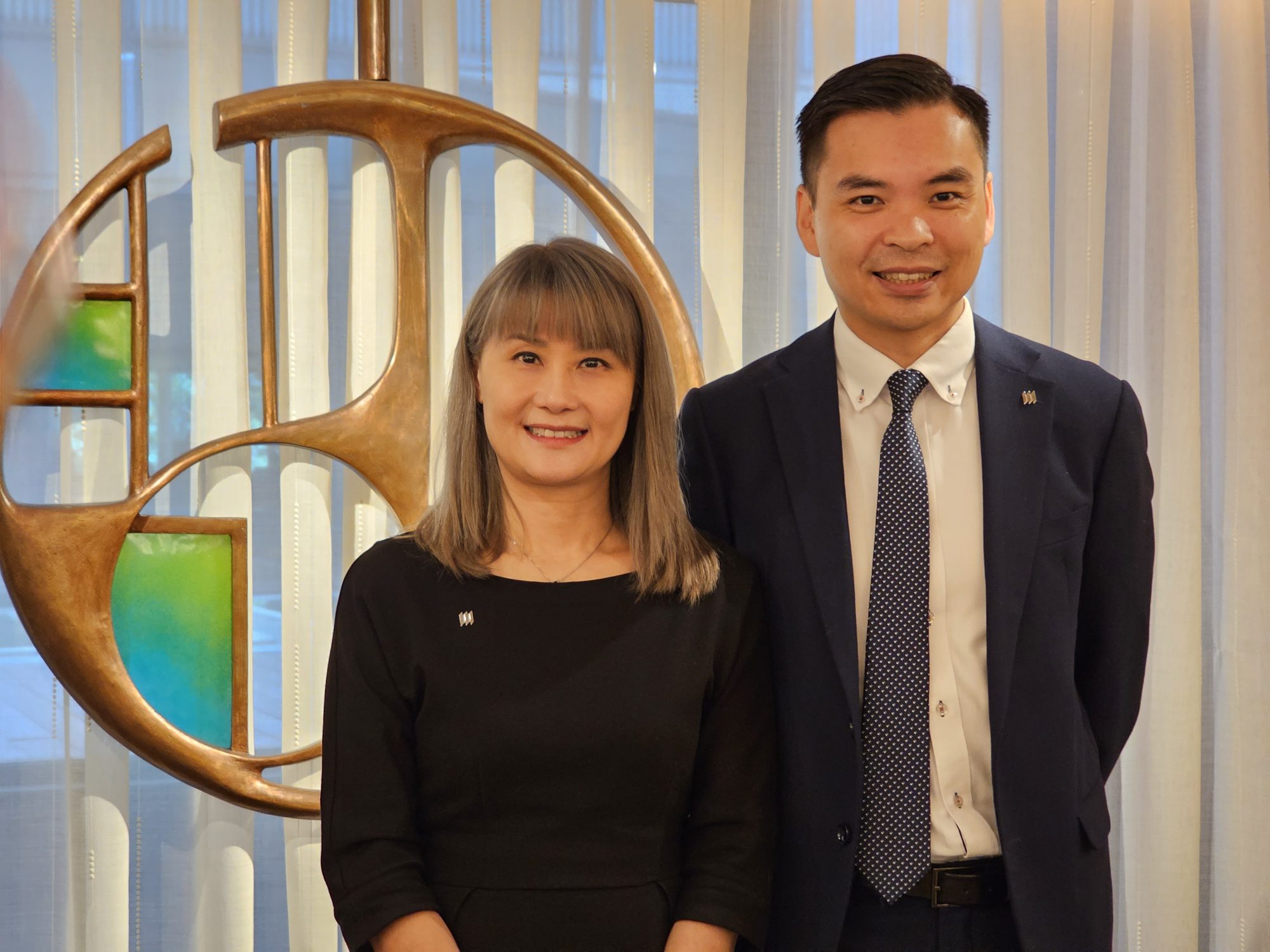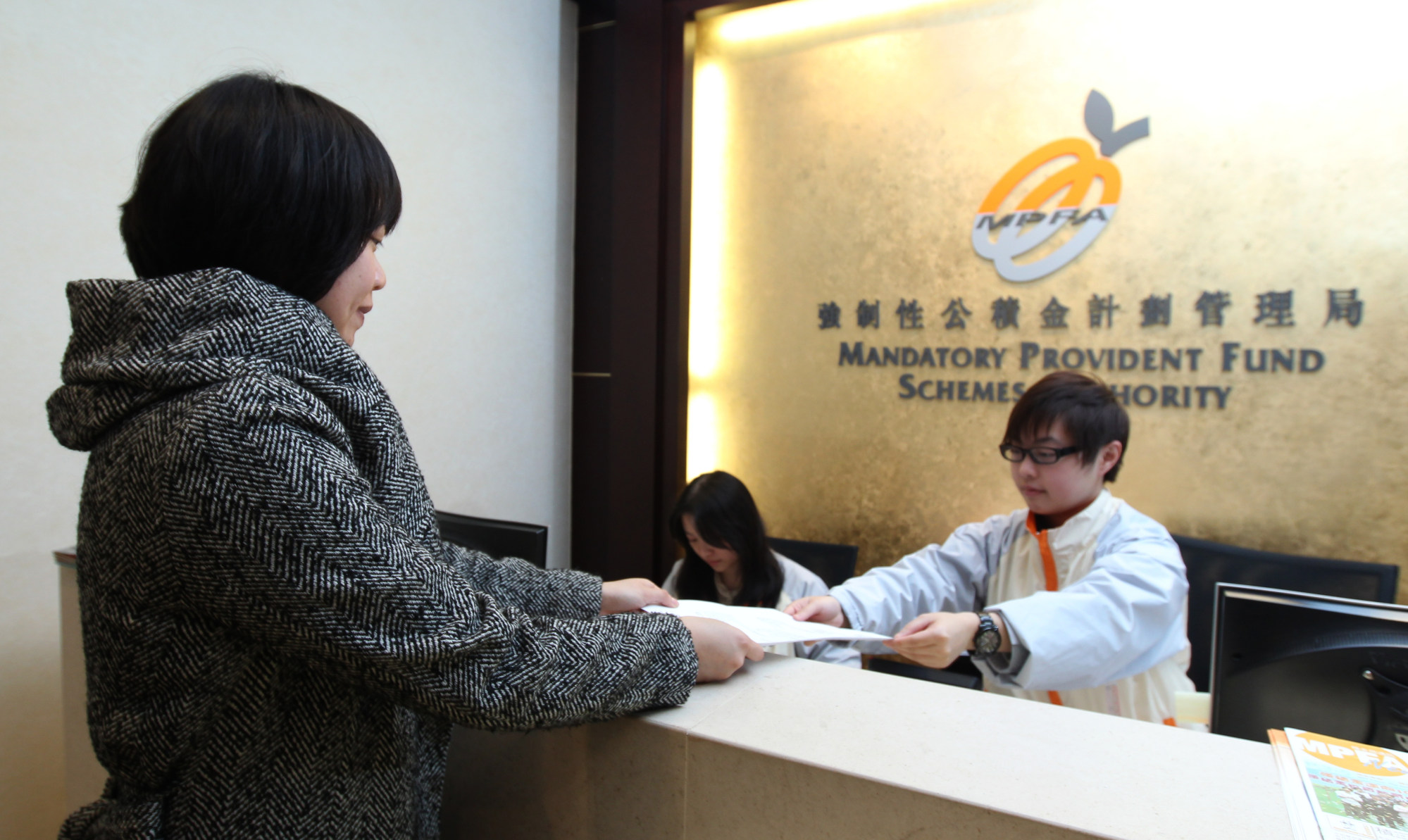
Manulife says MPF members changed fund choices more frequently during pandemic, but decisions may be ill-timed
- Many members are swayed by market sentiment and a majority miss the best window for portfolio rebalancing, Manulife report says
- MPFA urges members not to try and time the market as it might result in ‘selling low, buying high’
The number of Manulife members who changed their MPF investment fund choices last year increased by 60 per cent from 2019 before the pandemic, according to a report released by Manulife on Tuesday.
“We observed that many members are influenced by market sentiment, who switch to high-risk funds when the market is hot and back to conservative funds when the market is in panic [mode],” said Wong Tak-chi, deputy CEO of Manulife Provident Funds Trust, in a media briefing to release the report.
“Majority of members miss the best timing to rebalance their portfolios,” he said.

The global stock and bond markets have been volatile over the past three years due to a combination of reasons ranging from the pandemic and interest rate movements to Russia’s invasion of Ukraine, according to analysts.
“Markets were extremely volatile over the last few years, which contributed to the increase in MPF fund changes,” said Raymond Mok, assistant vice-president of investment strategy at KGI Asia, a Hong Kong-based securities firm.
Mok said most MPF members are retail investors, who are influenced more by emotional factors rather than professional analysis when changing their portfolios.
“They fear missing out on a massive bull market and may therefore add to risky equity positions and reduce those in bonds, which adds to their losses in the subsequent bear market,” Mok said. “When the pain of losses in the bear market is too much for them, they are likely to initiate stop loss-trades and switch back to bonds.”
More Hong Kong workers make voluntary contributions to MPF as returns shrink
The Mandatory Provident Fund Schemes Authority (MPFA), the local pensions regulator, urges members not to try and time the market.
“Switching MPF funds after a significant drop in the market may lead to a situation of ‘selling low, buying high’, turning short-term fluctuations into actual investment losses,” a spokeswoman of the MPFA said.
Besides market movements, fund switching may also have increased due to members working from home during the pandemic, according to Kenrick Chung, a director at Ben. Excellence Consultancy, an insurance broker in Hong Kong.
“Working at home might have given MPF members more time to look at economic news to make their investment choices,” he said.
The MPF is the government’s compulsory retirement scheme run by banks, insurers and fund companies that covers 4.7 million members in the city. The scheme allows employers to choose the provider, but leaves the choice of how to invest contributions and fund switches to its members.
There are a total of 413 MPF investment funds under the scores of schemes, each of which has five to 10 fund choices for members to choose from.
The Manulife report also found Hong Kong investors tend to be home-biased, with over 40 per cent investing in Hong Kong and China-related equity funds.
This bias may have forced an unwise choice of investments with China and Hong Kong equity funds having recorded a loss of 4.6 per cent in the first half of the year, the worst performance among all categories of fund choices, according to data provided by MPF Ratings, an independent research firm. Concerns about slowing economic growth have hit these funds hard, it said.

Hong Kong’s benchmark Hang Seng Index declined 4.4 per cent in the first half of the year, while the CSI 300 index, which tracks the top 300 stocks in Shanghai and Shenzhen, lost 0.7 per cent.
In comparison, US stock funds were the best performers, gaining 15.9 per cent, followed by global equity funds at 13 per cent and European stock funds at 12.6 per cent, MPF Ratings data showed.
Members unfamiliar with investing might want to consider default investment strategy (DIS) funds, which swap investments between stocks and bonds according to the age of the employees, the MPFA spokeswoman said.
In the first half of this year, DIS funds reported an increase of 9.1 per cent for funds with higher exposure to equities and 4.1 per cent for those more focused on bonds, the MPF Ratings data showed.
“DIS [funds are] a low cost, well-diversified and ready-made long-term focused investment solution,” said Francis Chung, chairman of MPF Ratings, which showed members of late were increasingly turning to DIS funds, indicating their willingness to diversify their investments.

